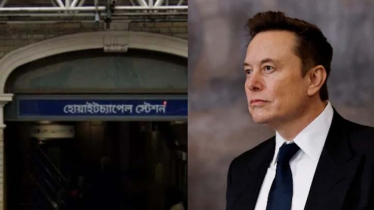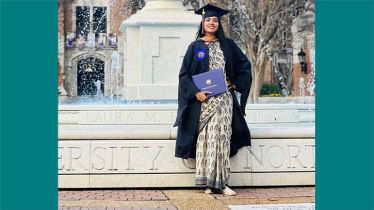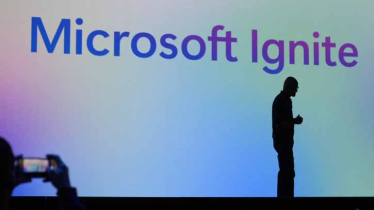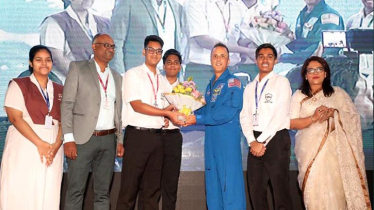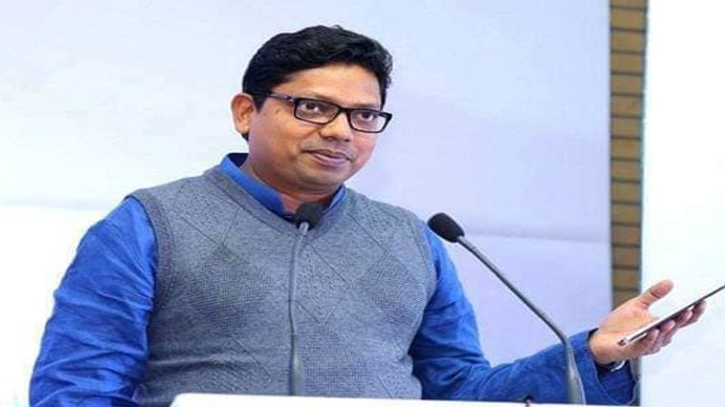
Photo : Collected
During the seminar on 'Smart Bangladesh and Cyber Security,' State Minister for Information Communication and Technology, Zunaid Ahmed Palak, highlighted the transformation of Bangladeshi workers into efficient professionals and farmers into savvy agriculturalists. He also emphasized the nation's trajectory toward a paperless economy.
Addressing the gathering at the Bangabandhu Military Museum Hall, jointly organized by the 'Innovation and Development Associates (iDEA) Foundation' and Hoplon Limited, the state minister underscored four key components essential for robust cybersecurity heightened awareness and training, rigorous law enforcement, technological advancement, and international collaboration. Additionally, he emphasized that the construction of a Smart Bangladesh hinges on four fundamental pillars the cultivation of Smart Citizens, the development of a Smart Economy, the establishment of a Smart Government, and the fostering of a Smart Society. Furthermore, he stated that the implementation of a National Digital Architecture would effectively mitigate instances of data theft.
Under the presided of the Chairperson of iDEA Foundation and Former Alternate Executive Director of the World Bank and Executive Chairman, of Bangladesh Investment Development Authority (BIDA), Kazi M. Aminul Islam, Honorable State Minister of ICT department, Zunaid Ahmed Palak, MP, attended as the chief guest. Additionally, Md. Shamsul Arefin, the Secretary of the ICT department, graced the event as the special guest.
The keynote presentation was delivered by Habibullah N. Karim, the founder and CEO of Technohaven. Syed Sadat Almas Kabir, Panel Advisor of FBCCI and Former President of BASIS, emphasized the need for Cyber Security for smart citizens during the panel discussion. Professor Mahmuda Naznin, the Head of the Computer Science and Engineering Department at BUET, discussed the increase in Cyber Security capacity and the academic role. Furthermore, the Director General of the Digital Security Agency, Abu Syed Md Kamruzzaman, NDC, focused on Bangladesh Cyber Security Compliance and the role of the regulator. The Seminar were moderated by Md. Abul Kalam Azad, the Vice Chairman of iDEA Foundation and Co-Chairman of Smart Bangladesh Network and former principal secretary. Md. Shahidul Haque, Executive Member of the iDEA Foundation and a former Senior Secretary of the Legislative and Parliamentary Affairs Division delivered the welcome speech, while Syed Ahsan Habib, the chairman of Hoplon Limited, extended gratitude to all participants.
Md. Shamsul Arefin said, “Three basic matters for cashless and paperless infrastructure development are Data center, cyber security, and digital signature. Cyber security is extremely important and to protect it, National and International ICT departments are relentlessly working. Along with government data centers, private centers can also play a vital role in it. Help can be taken from Cyber Bullying, Crime and Counsel 3338 and 13219.”
During the keynote presentation, Habibullah N Karim emphasized the presence of cybersecurity risks in the country at various times, stating that their current existence cannot be refuted. Notably, Bangladesh Bank, the Election Commission, as well as various government and private institutions, have been affected. Cyber-attacks have resulted in significant financial and reputational damages, leading to the exposure of sensitive information. Common types of cyber-attacks include malware attacks, phishing attacks, denial of service, and distributed denial of service, among others. In response to these challenges, he recommended the implementation of cyber security awareness training programs and underscored the importance of collaborative efforts between the government and the private sector. Additionally, he stressed the necessity of prioritizing investments in cybersecurity, particularly in the realm of research and development.
Md. Abul Kalam Azad said, “If you have any asset, the responsibility to protect it is yours. We must see how much we have given, how much we have to offer, and how much we are required for the security of the digital asset that has emerged as the driving force of our personal and social lives. User ID and password should be used carefully. At times, changing passwords and if needed putting two-factor authentication is also an essential matter to consider.”
Kazi M Aminul Islam said, “The use of computers was comparatively less before COVID-19 and currently it has been increasing. In order to build Smart Bangladesh, it is absolutely needed to secure cyber security. To generate this awareness iDEA foundation has been relentlessly working. We believe that we should take this issue seriously by recruiting skilled and qualified manpower so that our citizens do not have to face this problem like other countries.
In recent years, Bangladesh has demonstrated significant strides in technology, driven by innovation and enhanced connectivity with developed nations. This transformative plan encompasses crucial sectors in Bangladesh, such as agriculture, healthcare, education, and government and public services, among others. An open discussion was held to underscore the importance of cybersecurity in adequately preparing and guiding the next generation towards the constructive use of technology, thereby contributing to the further prosperity of Bangladesh.
Messenger/Sajib


